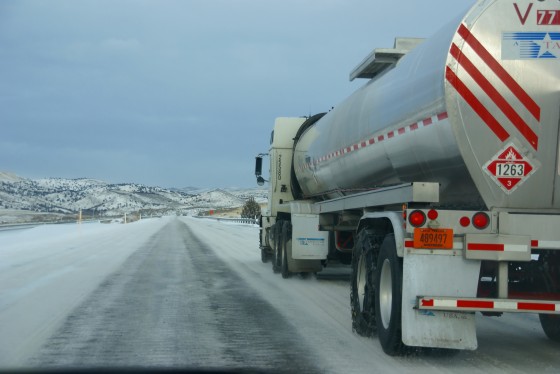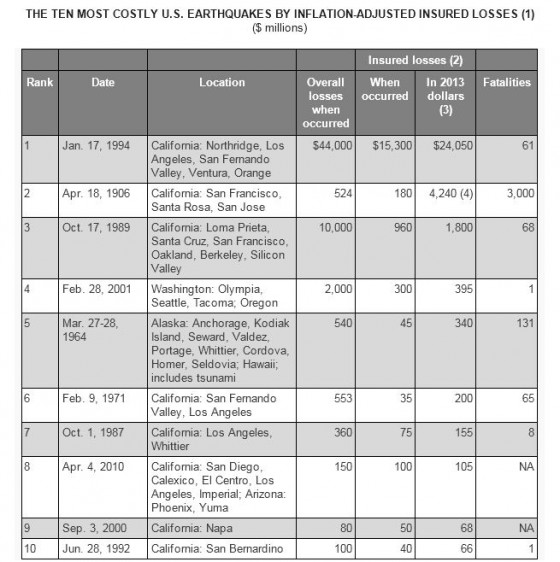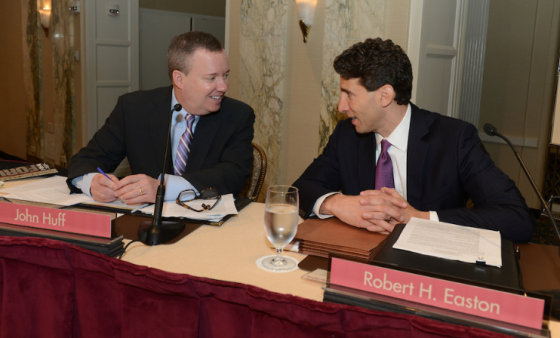Last week’s optimism about the possible reauthorization of the Terrorism Risk Insurance Act was replaced by “disappointment” today, as the insurance industry sounded off about the Senate’s failure to pass the House-approved TRIA bill before adjourning. TRIA, the federal insurance backstop that requires insurers to offer terrorism insurance coverage to policyholders, is set to expire on Dec. 31, 2014. More than 60 percent of all U.S. businesses purchase terrorism insurance coverage, according to Marsh USA.
“A major terrorist attack occurring without a TRIA law on the books will be far more disruptive to the U.S. economy than one where TRIA is in place,” Robert Hartwig, Ph.D., president of the Insurance Information Institute and economist said in a statement. “Terrorism insurance policies are going to lapse in 2015, and insurers will be under no obligation to renew them, adversely impacting the construction, energy and real estate industries, among others. For instance, a theatre owner hosting a controversial movie premiere on Christmas Day may have insurance coverage for losses triggered by an act of terrorism but this same business might not have it if a comparable attack were to occur on New Year’s Day.”
The Coalition to Insure Against Terrorism (CIAT) spokesperson Marty DePoy said, “CIAT is incredibly disappointed that the Senate chose to adjourn without reauthorizing the Terrorism Risk Insurance Act, a program that since 9/11 has provided critical stability to the marketplace against another terrorist attack. This is a bipartisan failure; the 113th Congress has let down American workers, American businesses and jeopardized U.S. economic and national security. CIAT urges the new Congress to make TRIA reauthorization its top priority in January and immediately vote to extend the program for the long-term.”
RIMS President Carolyn Snow echoed disappointment. “We are extremely disappointed that Congress failed to pass an extension of TRIA, despite strong bipartisan support.
The program’s expiration will have many negative repercussions for commercial insurance consumers, the countless organizations they represent and the U.S. economy as a whole.”
She noted that since its inception, “TRIA has stabilized the marketplace by providing adequate capacity at affordable rates. Its expiration will almost certainly cause rates to rise, placing many lending agreements in jeopardy and forcing some organizations to self-insure or simply go without.”
Leigh Ann Pusey, president and CEO of the American Insurance Association (AIA), said AIA is “incredibly disappointed,” adding that by letting TRIA lapse, “Congress has failed to protect taxpayers and the economy.”
She said, “Without TRIA in place on Jan. 1, insurers will be forced to assess their exposures. The program’s lapse will significantly jeopardize the terrorism insurance marketplace that currently protects our nation’s economy against major acts of terrorism. We strongly urge the new Congress to take up the House-Senate negotiated TRIA reauthorization package as its first item of business when it returns in January in order to minimize marketplace disruptions.
”
Global risk advisor, Willis expressed disappointment as well, noting that its biggest concern is that Clients “will need help in reevaluating their risk exposures according to the changed environment where TRIA is no longer available as a back stop for the insurance market place. Of particular concern is where clients have loan covenants that determine the type and amount of terrorism insurance coverage that is required.”
Mike Becker, executive vice president and chief executive officer of the National Association of Professional Insurance Agents observed, “Disagreement won the day and politics took precedence over protecting the American people. There was overwhelming bipartisan support to renew TRIA, with both parties showing strong leadership to get a compromise deal done in recent weeks. That support was nearly unanimous, with the House approving the TRIA renewal deal 417-7 last week, and the Senate having already passed a similar version 93-4 last July.”
Snow concluded, “RIMS and many other organizations have been pushing Congress to pass an extension for the past two years but Congress senselessly ignored those concerns and waited until the very last moment. This delay has ultimately led to the worst possible outcome.”




